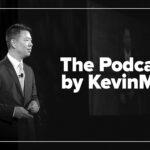In the late 1970s, a Japanese biochemist named Akira Endo discovered a compound from fungus that inhibited HMG-CoA reductase, the enzyme responsible for making cholesterol. It was an academic curiosity at the time. No one knew if lowering cholesterol would prevent heart attacks—it just lowered a number on a lab slip.
That compound eventually became lovastatin, and in 1987, Merck brought it to market with no proof of improved outcomes—only a promising mechanism and a hypothesis in search of validation. The first major trial showing that statins saved lives—4S—didn’t appear until 1994. By then, the narrative had already taken hold.
Statins were the first blockbuster biochemical solution to a statistical abstraction, and they opened the door to a new era: Drugs that treat risk more than illness, and surrogate markers more than suffering.
Now, that playbook is being dusted off—and upgraded. This time the target is Lp(a).
Same story, better marketing
Lp(a) is an LDL-like particle with a kringle-shaped tail that makes it more adhesive and thrombogenic. It’s been linked to early heart disease and aortic stenosis. And yes, it’s genetically inherited, hard to measure, and essentially untreatable with anything lifestyle-related.
Perfect.
It’s the dream of every biotech executive:
- You can’t feel it.
- You can’t fix it.
- But we can—if you take our new monthly injectable.
Drugs like pelacarsen (Novartis), olpasiran (Amgen), and SLN360 (Silence Therapeutics) lower Lp(a) levels by up to 98 percent. And yet not one of them has shown a reduction in cardiovascular events.
No heart attacks avoided. No strokes prevented. No lives saved.
Just a number—falling impressively—on a graph.
And yet advisory boards are already forming. “Educational” modules are circulating. Pharma-funded studies are making headlines. The public is being primed. Cardiologists are being softened. And a new generation of guidelines is on the horizon.
This isn’t just marketing. It’s pre-marketing—conditioning the field for a therapeutic need that hasn’t been proven to exist.
The Sackler parallel
If this feels familiar, it should. It’s Purdue Pharma in a lab coat.
When the Sackler family introduced OxyContin, they didn’t just sell a drug—they fabricated a framework. They created pain advisory boards, launched the American Pain Society, and saturated continuing medical education with the idea that pain was under-treated and opioids were the solution. The entire movement rested on one shaky claim: A single sentence in a 1980 NEJM letter to the editor, which stated—without data—that addiction was rare in patients taking opioids for pain.
That sentence became a billion-dollar weapon.
And now? Pharma is again building a disease infrastructure around a single molecule—Lp(a). They are not waiting for outcomes. Because outcomes take time. Narratives sell now.
This is not an accusation that Lp(a) therapies are addictive or deadly. It’s something more insidious: They may be irrelevant. Just like CETP inhibitors that raised HDL but did nothing for outcomes, lowering Lp(a) may not change the course of disease at all. It might be a genetic marker, not a therapeutic target.
But if we let industry write the narrative before the data comes in, it won’t matter. The shots will already be on the market. The guidelines will already be rewritten. And we’ll be living inside another post-truth era of lipidology, just as we did with HDL.
The moral of the story
We’ve seen this movie before. The question isn’t whether it ends in scandal. The question is whether we’re willing to wait for proof before prescribing belief.
Because right now, we’re watching a pill—or rather, a pre-filled syringe—in search of an ill. And the only thing more dangerous than a harmful drug is an unnecessary one.
Larry Kaskel is an internist and “lipidologist in recovery” who has been practicing medicine for more than thirty-five years. He operates a concierge practice in the Chicago area and serves on the teaching faculty at the Northwestern University Feinberg School of Medicine. In addition, he is affiliated with Northwestern Lake Forest Hospital.
Before podcasts entered mainstream culture, Dr. Kaskel hosted Lipid Luminations on ReachMD, where he produced a library of more than four hundred programs featuring leading voices in cardiology, lipidology, and preventive medicine.
He is the author of Dr. Kaskel’s Living in Wellness, Volume One: Let Food Be Thy Medicine, works that combine evidence-based medical practice with accessible strategies for improving healthspan. His current projects focus on reevaluating the cholesterol hypothesis and investigating the infectious origins of atherosclerosis. More information is available at larrykaskel.com.

















![AI censorship threatens the lifeline of caregiver support [PODCAST]](https://kevinmd.com/wp-content/uploads/Design-2-190x100.jpg)
